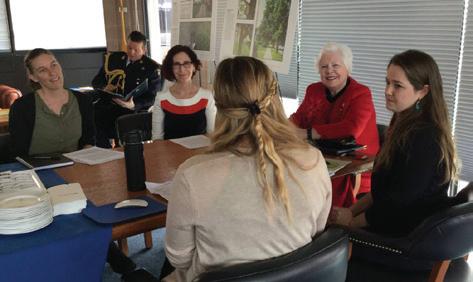
1 minute read
Executive Summary
Defning Sustainability
Sustainability is a complex term as its meaning can differ from place to place and from person to person. At Lakehead University, sustainability is considered in a pluralistic and inclusive way, encompassing human and ecological health, social justice and equity, Indigenous rights, secure livelihoods, workplace wellbeing, and leadership for vibrant and resilient communities.
Sustainability Governance
In spring 2016, an Executive Advisory Committee, in collaboration with the Sustainability Coordinator, launched a sustainability governance framework for both campuses. Recognizing that sustainability initiatives have been organized by staff, faculty, and students for many years, this framework supports a participatory process that is non-hierarchical and empowers the self-organizing talents of creative individuals and groups. Embracing a culture of sustainability is a challenging but necessary transition. The power to create a more sustainable Lakehead lies in our collective willingness to authentically engage with the issues and with each other, and in our commitment to translate our ongoing dialogue into meaningful actions. Crafting a governance plan for sustainability raises issues of power, authority, and accountability. Efforts to be inclusive and inviting of diverse perspectives depend on fostering a non-hierarchical ethic of democratic dialogue and decision-making.
M.Ed Candidate Gemma Romano, PhD Candidate Roopa Rakshit (not pictured), and Assistant Professor Lindsay Galway presented their sustainability-focused research in 2017 to The Honourable Elizabeth Dowdeswell, Lieutenant Governor of Ontario, along with Dr. Batia Stolar from the Offce of Research and Innovation, and Ledah McKellar from the University Sustainability Coordinator.
Photo credit: Dr. Andrew Dean







